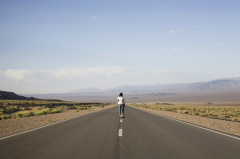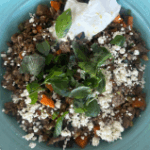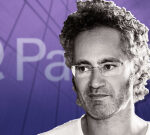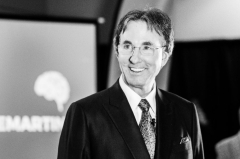Embracing uncertainty as a catalyst for growth, creativity and mindful decision-making in this empowering guide to life’s unknowns.
Instead of a promotion, you’ve just been made redundant and discovered your not-so favourite cousin is staying with you for a month. You’d be forgiven for curling up on the couch with a tub of caramel-swirl ice-cream and thinking, “Well, life really does suck at the moment.” No matter how it feels right now, it’s not all gloom and doom.
During periods of uncertainty, we peel back the jumbled intricacies of our humanity and truly thrive. We cut to the chase, to the heart of what we truly care about.
Authors of The Upside of Uncertainty: A Guide to Finding Possibility in the Unknown, professor Nathan Furr and entrepreneur Susannah Harmon Furr, believe uncertainty can be a gift. “Even now, behind every uncertainty you are facing, even the unwanted and unpromising varieties — insight, growth and possibility — are waiting in the wings,” note the authors. “We’re all wired to fear the downsides of uncertainty, but forget that change, creation, transformation and innovation rarely show up without some measure of it.”
By being let go at work, you might decide on a career pivot and score the job of your dreams. By spending time with your cousin, you might recapture the closeness you shared as kids. Unknowing means we can stay open to new experiences. We can reassess our values. If we’ve been through a traumatic or uncertain time, we can reflect on what really matters to us.
Which way is up?
Predictability is comforting, we want to know what’s next. Not knowing can make us feel vulnerable and uncomfortable, especially if we subscribe to the theory that if we take specific steps or actions, we’ll get the results we’ve worked towards.
In Uncertain: The Wisdom and Wonder of Being Unsure, author Maggie Jackson writes, “Humans are built for survival’s sake to yearn for answers and for the predictability that offers them up.”
She adds it’s a proven psychological finding that people tend to be more stressed if they don’t know an electric shock is coming than if they are pretty sure they will get one. Basically, we want to know, even if it’s going to hurt.
But life is not predictable. It’s messy, wonderful and crazy. Sometimes it’s so loud, you just want to ignore the chaos inside your head, sit on a beach and feel the warm sand scrunch between your toes.
But unknowing can be cool, for a host of reasons. Uncertainty allows you to cultivate your own creativity, to seek your own truths. It offers opportunity to build strength and resilience.
The reality is, we just need to roll with it sometimes. Clinical psychologist Dinusha Cragg says being accepting of uncertainty allows us to be more psychologically flexible. “It means we can make more mindful choices and conscious decisions, which align with our values,” she explains.
If we press pause, it allows us to think about what matters to us. It can give us an opportunity to explore different possibilities. “There is something really beautiful about uncertainty, even if it does feel a bit uncomfortable at times,” says Cragg.
We live in an uncertain world
The last handful of years have been tumultuous with the pandemic, the soaring cost of living, natural events that have brought townships to their knees and global social turmoil. Many people are struggling and trying to make sense of it all.
Meanwhile, technology forges ahead, at breakneck speed. AI is an insatiable force, even though movers and shakers like Elon Musk and other tech giants have voiced concerns it can pose profound risks to society and humanity. Plug in an algorithm and AI can spit out an answer. It doesn’t factor in the human element, our thoughts, our fears. Questions are asked and answered at quantum speed.
These days, there’s pressure to know all the answers and to make quick decisions. Some popular culture tells us if we don’t know all the answers that, somehow, we have failed. And that is simply not true.
Uncertainty impacts all of us differently. Intolerance to uncertainly is viewed by those who have an anxious disposition as something to be feared. Others can look at uncertainty as a challenge or a potential new adventure. Uncertainty also allows us to slow down, to see what opportunities are waiting if we contemplate taking a different path.
The decision dilemma
Maybe I should? Or shouldn’t I? If you’ve ever felt crippled by the sheer frustration of not being able to make a decision, you are not alone. It’s not always easy to make big choices, especially when a lot is at stake.
Do I stay in a relationship where I feel like I’m losing myself, because I don’t want to be alone? Should I coach my son’s soccer team, I’m already slammed with commitments?
Indecision can feel soul destroying. But we don’t always have it all figured out, right now. Not having all the answers, and resisting the urge to make snap decisions, can be a good thing.
If you do tend to rush into decisions, research shows it could be worthwhile rethinking that strategy. Work by Columbia University Medical Centre showed the accuracy of a decision can be improved by a mere fraction of a second just by taking a beat.
If you can’t decide, look within, find your inner truth. Learn to trust your intuition to see that you are consciously making choices that align with your values, or higher self. Maybe you are making decisions based on your internal beliefs about what you feel you deserve? If you feel like you walk through life with a post-it note stuck to your forehead that says “please like me”, take it off and put it on the mirror. Quiet your inner critic with positive self-talk. You are a unique human who is worthy of love and compassion. Forgive yourself.
If you are feeling stressed about uncertainty, stop. Right now. Breathe in and out. If you are feeling anxious about a decision, it can cloud your judgement. Your inner knowing, your intuitive self, is lost in the voices telling you what you “should” do.
Recognise your own true value and self-worth. Practise the art of self-compassion. If you are constantly being critical of yourself, that can feed into negative self-perception and lead t





